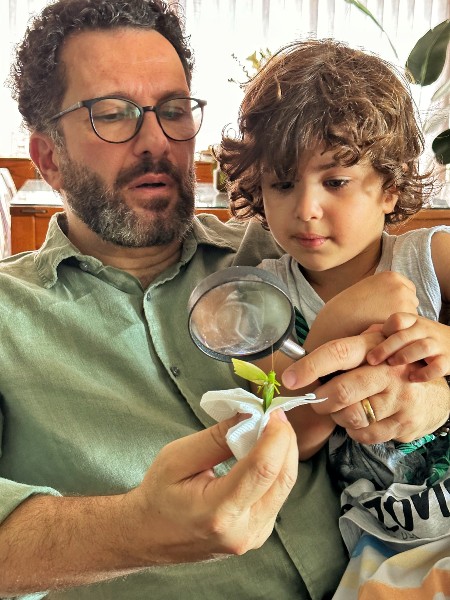Highlighting Australia
- As a proudly Australian initiative, we’re excited to showcase a collection of Australian stories, music, tributes and more.

Join activities, celebrations, study groups, spiritual empowerment and education programs for young people, and more.
Baha’i beliefs address essential spiritual themes for humanity’s collective and individual advancement. Learn more about these and more.

The Road to Peace is a short film by Flavio Azm Rassekh. It was made in collaboration with PersianBMS and graciously shared with permission.
Conflict has been part of our lives from the beginning of history; it is still the main source of stories for books and films, the key element of interest for the masses nowadays. Some people have come to assume that humans are naturally violent and self-oriented, competitive and greedy and that those traits are part of our collective DNA.
This short animation questions those assumptions, brings forth many myths that have become intrinsically part of our lives, and presents some new perspectives on how can we rebuild our communities in the 21st century.
Flavio kindly agreed to tell us about his latest animation and the inspiration behind it:
Can you tell us a little bit about this short film?

This story started to materialize in our heads two years ago. It was an attempt to explain the root causes of war and conflict and the challenges we have been dealing with in the past century. The widespread fear of another great war made the theme even more urgent.
Why did you choose to focus on this topic?
We have been getting lots of questions about the sources of evil in this world, if humans are naturally prone to violence and aggression, and if not, where these beliefs come from. The film was originally produced in collaboration with PersianBMS, to be aired inside Iran. Even though some elements of it resonate more with the Iranian population the story in itself is universal.
Why was it important for you personally to make this film?
I’ve heard many times lately that the best film/work of art you can produce is the one that comes from your heart, and from your heart only. Replicating someone else’s ideas seems to be a waste of the God-given potential each one of us has inside. I looked online to see if there was anything on this subject the way I wanted to do it. Since I could not find anything I felt it was my duty to try to produce something.
With the rise of social media and greater access to the tools for producing films and animations, each person can tell his take own story more or less the same way different writers in the past could share their perspective about a specific theme.
How does this fit in with the other films you have created?
The other films we have produced are intimately connected to this one: we have short pieces about education, health, and agriculture, and other stories connected to individual personal journeys. What they all have in common is the influence of the Baha’i Faith in the transformation of individuals and their communities. The end of this new story is specifically very interesting because it talks about a new myth taking shape in the world today.
How do you hope people will feel after watching?
Maybe they might feel more hopeful about the future, maybe not the near future, but in humanity’s glorious future. Sometimes a bit of perspective about our shared history can help ease the anguish we feel when we see the process of disintegration accelerating around us. The example of how the world collectively abandoned slavery is something we can reflect on.
There is a beautiful new process of integration, collaboration, and reciprocity slowly taking shape at the level of the communities. It is still in its early stages, and it’s being resisted by the opposite forces of individualism, prejudice, aggression, and materialism.
What the film is trying to show is that this new process is being motivated and fueled by a new collective myth brought into this world by Baha’u’llah. It will eventually replace the old model and will be internalized by the masses as a natural outcome of humanity’s spiritual coming of age.
Thank you, Flavio, for taking the time to chat with us and for us giving us permission to share your short film.
You can watch more of Flavio’s collaborations with PersianBMS here on Baha’i Blog such as his trilogy of personal stories about having hope in a seemingly hopeless time, a historical examination of Abdu’l-Baha’s agricultural initiatives, an animation about how Abdu’l-Baha touched the lives of a number of notable individuals, His public health initiatives in Iran, and how He inspired schools that broke generations of oppression against women and girls.
"*" indicates required fields

We recognise their continuing connection to land, waters and community. We pay our respects to Aboriginal and Torres Strait Islander people and their cultures; and to elders both past and present.
The views expressed in our content reflect individual perspectives and do not represent authoritative views of the Baha’i Faith.

Visit the site of the
Australian Baha’i Community
and the Baha’i Faith Worldwide
Notifications